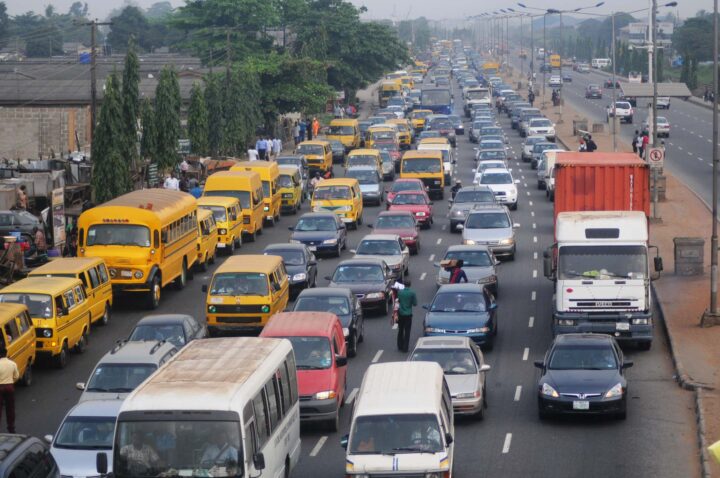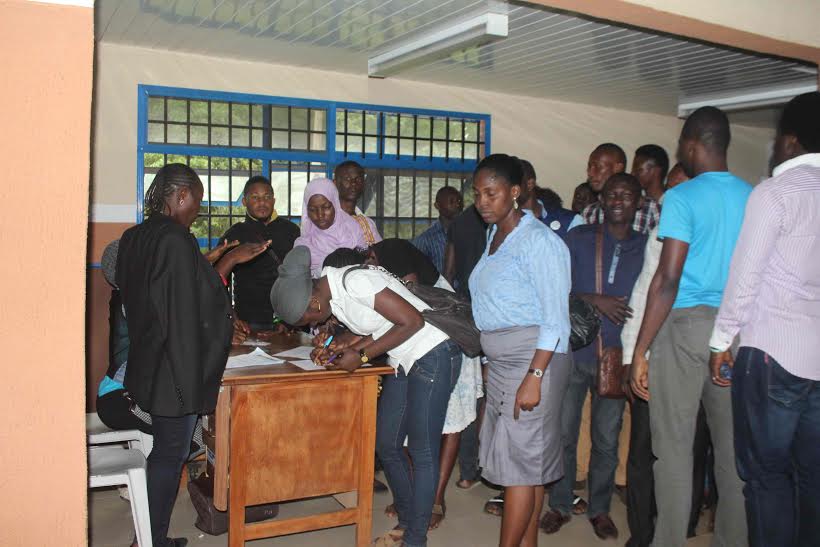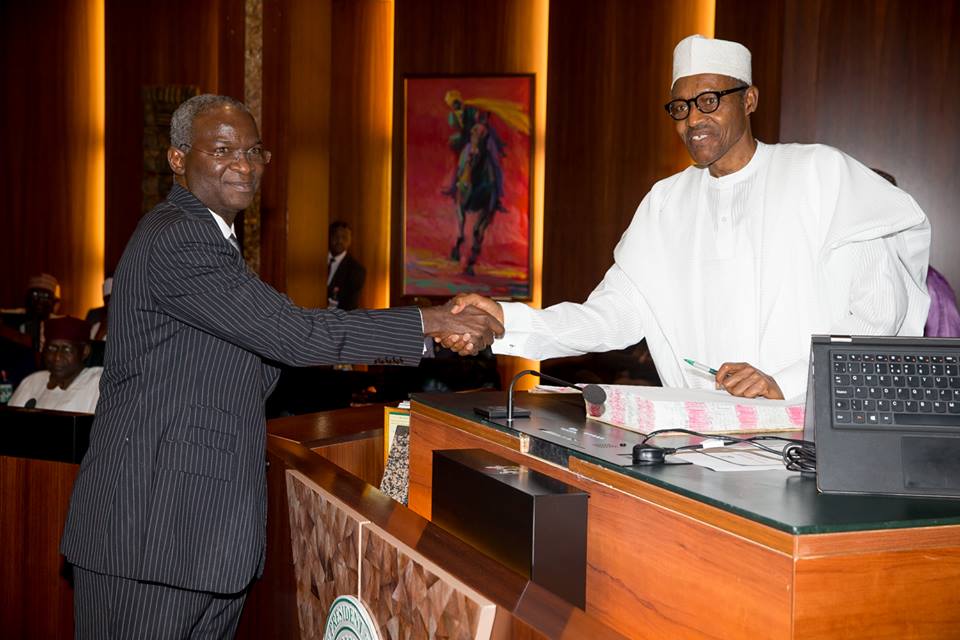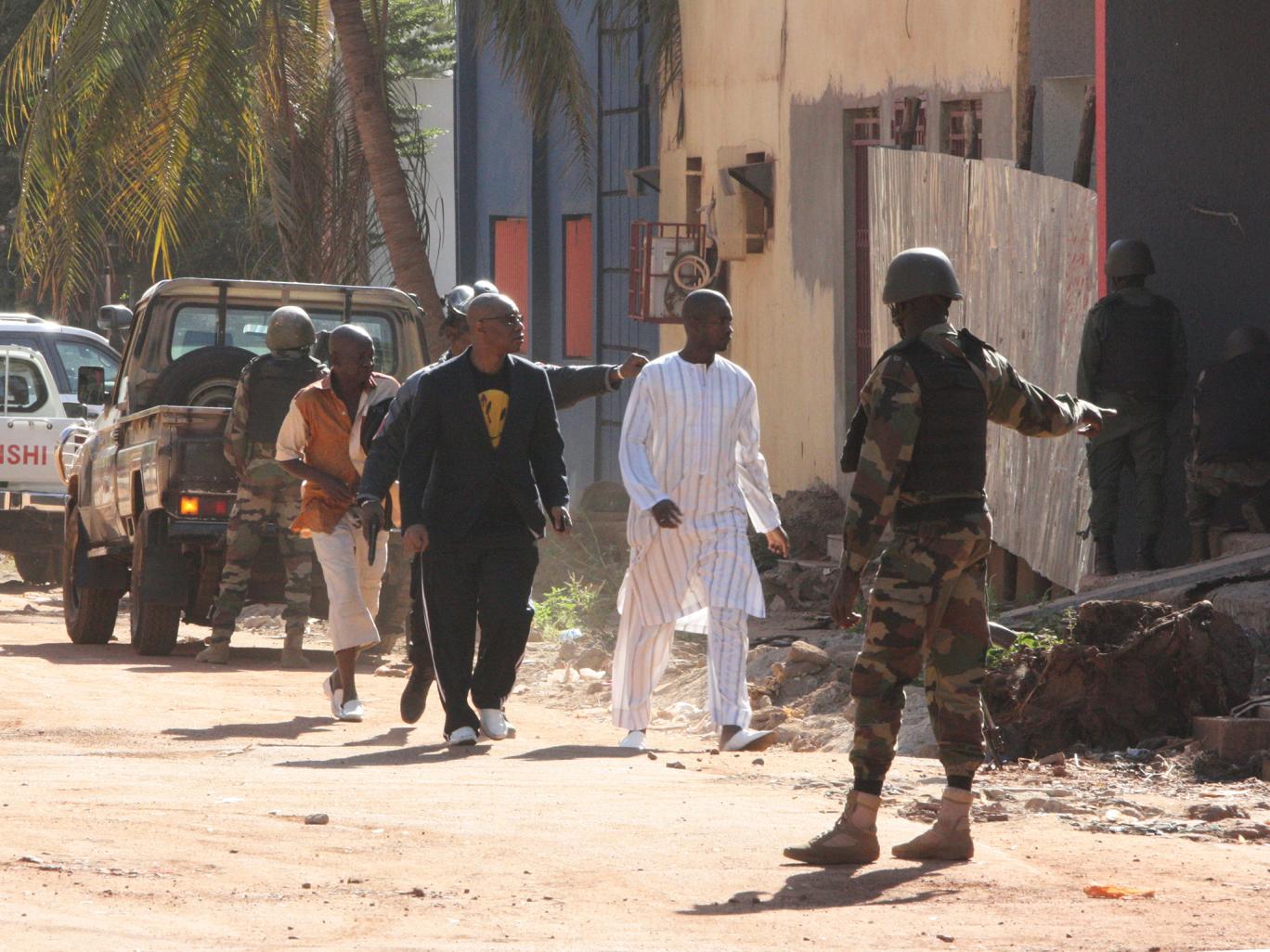Newspaper headlines have a way of conveying care or scare tendency. ‘Military activities forced Boko Haram to Lagos, Others – Police’ which a few newspapers used in one of their editions last month certainly sent a bit of jitters to the spine.
It was their way of capturing the remarks of Bala Hassan, the Assistant Inspector General of Police (Zone 2) at a Press Conference in October to explain why increased military activities in the North-East of Nigeria had forced terrorists to flee to Lagos and other states.
The Zone 2 Command of the Nigerian Police Force heads police formations in Lagos and Ogun States and expectedly it must be on top of intelligence reports emanating from its fold. It could be deduced, therefore, that the intention of last month’s press conference was not to scare but to inform and educate. Aside drawing attention to the fact that as the year draws to an end, there might be a noticeable rise in crime and robberies, Hassan was also clear in painting the unsettling reality of the moment:
“We are aware that if there is a high concentration of military activities in an area, there is a likelihood that the criminals will migrate to another part of the country. That is what is happening with the insurgents in the North-East.” Seeing the need to clarify and reassure the public, Hassan added that “the Police are aware…and we have put measures in place so that we can handle any suspicious activities. We are not resting on our oars.”
Advertisement
If we recall the arrest of 45 suspected Boko Haram members in Lagos just a week before Hassan addressed the press, it shouldn’t be difficult to see merit in the theory that insurgents will naturally seek escape routes to other states when faced with military onslaughts in their normal enclave. Yet, there is merit in the assurance from security chiefs in Lagos State who meet once a month at the Security Council Meeting with the Lagos State Governor, Mr. Akinwunmi Ambode, that Lagos has always stayed a step ahead of terrorists and that security of lives and property will not be compromised in Nigeria’s most populous and economically viable state.
This indeed is an attestation to the efficacy of intelligence gathering which was what allowed the Directorate of State Services (DSS) to apprehend those terror suspects in Ikoyi last month. Same for the arrest on Sunday November 8, 2015 of a suspected Boko Haram terrorist, Chindo Bello, while trying to board a plane from Abuja to Lagos.
It’s intelligence!
Advertisement
Without a doubt, more of such intelligence network will be needed at this period when Lagos is witnessing an unprecedented influx of internal economic migrants. According to the Lagos State Commissioner of Police, Fatai Owoseni, approximately 10,000 people relocate to Lagos every other day, with more than 75% of them nursing no intention of leaving soon. The attendant pressure on hospitals, public school and, in particular, infrastructure is unimaginable.
It is a tough development that most people either tend to overlook or have not really come to terms with. But it is worth stressing that in a country where harsh economic reality is forcing the federal government, like many states, to reduce the number of ministries; where 27 states had to resort to a bail-out package when they could not meet salary obligations of their workers and where companies’ profits dip daily and many declaring losses, Lagos will expectedly become the centre of attraction.
Much more than before, the centre of excellence is now like the Mecca for every artisans, school drop-outs, fresh graduates, professionals relocating from beleaguered states in the North-East and even foreigners from neighboring countries like Niger and Chad. The Nigerian Police estimates that the number of ‘internal migrants’ that have relocated to Lagos in the last six months has been the highest in history. The situation is akin to the austere times of mid and late 1980s when millions of youths simply wanted to emigrate abroad or make do with Lagos if visa hassles would deny them the opportunities of taking “Andrew’s Option” of ‘checking out’.
The attraction to Lagos is not difficult to spot. This is one of Africa’s biggest economies, after Nigeria. The Internally Generated Revenue of the state is bigger than those of 31 other states in Nigeria combined. 90.1% of Direct Foreign Investments of Nigeria berths in Lagos. And at $131bn, this state’s Gross Domestic Product is bigger than the economies of 42 African countries combined, so much so that if Lagos State were a country, it would be the 6th largest economy in Africa, almost at par with that of Angola ($131.401), an oil-producing country and ahead of Morocco’s whose GDP stands at $107.005. To the growing band of job seekers, therefore, this is the proverbial land of opportunities that is forever welcoming and does not discriminate.
Advertisement
But with a landmass that is the smallest in Nigeria, 22% of which is water, the effect of rapid urbanization simply means Lagos is bursting by the seams. With an estimated 21 million people, this is not just one of the world’s fastest growing mega cities, but Africa’s most populated after it overtook Cairo in headcount in 2012.
A major consequence of this, however, is the incessant gridlock that oft-times make life miserable for many commuters and business owners. Until it started easing off gradually in the past few weeks, after Governor Ambode’s decisive move to address the issue of enforcement of the Lagos State Road Traffic law, the issue of traffic congestion had been the most talked-about in the state under this administration.
If we remove the conspiracy of that wet Monday in September when thousands of trailers clogged the roads on their way to Apapa, the notorious axis where at least 80% of fuel in Nigeria is loaded and transported to other states, much of what has been written about the Lagos traffic is largely orchestrated with a tinge of exaggeration. Politics, and if you like, sabotage, found its way into an issue that required every hand to be on deck.
But this is a narrative that is as old as contemporary Lagos; in fact it is known to be a contributory factor to the reason why former Head of State, Ibrahim Babangida, hastened the relocation of Nigeria’s capital from Lagos to Abuja in 1992.
Advertisement
Many Lagosians, like those living in any burgeoning megacity, think their traffic situation is the worst. But it’s a common sight in any big city: streets clogged with cars, motorcycles and try-cycles, commercial buses and taxis…all inching their way from one end of the choked metropolis to the other. Undoubtedly, rapid urbanization with its attendant increase in car ownership is exerting massive pressure on traffic management. What is needed is the constant reminder that this state will have to fight this common urban feature like the rest of the world’s mega cities.
The situation in Lagos may be bad, but it is not the worst. For example, Lagos did not feature in the latest the ranking of Top 10 cities with the worst traffic in the world. According to Castrol’s Magnetic Stop-Start Index, which monitors the number of times a car started and stopped per kilometre, then multiplied it by average annual driving distance in the country, the world’s worst traffic nightmares are elsewhere: Indonesia, Russia and Mexico each have two cities in the Top 10, while Istanbul (Turkey), Rome (Italy), Bangkok (Thailand) and Buenos Aires (Argentina) are others.
Advertisement
Even in the United States which has only two cities in the ranking (New York and Los Angeles), its 2015 Urban Mobility Scorecard revealed that in Washington DC alone, with its close-in suburbs of Maryland and Virginia, each commuter suffered on average a delay of 82 hours in 2014; and this in a city where alternative train services are efficient.
Megacities are now discovering that building more highways does not necessarily help. Instead, it tends to worsen traffic by increasing overall car-dependence. The reality is that the combination of more people and more cars results in a simple arithmetical problem: too many vehicles, too little space.
Advertisement
Where then does the solution lie?
Clearly, there is no one-size-fits-all solution. Brazil is experimenting with the helicopter option, in which its rich in Sao Paulo are taking to the skies, moving from homes to offices and business meetings by air. But not only is this helicopter taxi option expensive and cannot go round, the air pollution effect of several hundreds of helicopters hovering over an already congested city does not sound very desirable.
Advertisement
In the US, on the other hand, according to Netscape, “the most immediate help must come from the businesses that employ the commuters.” It suggested that business owners can allow employees to work from home, additional days a week or adjust their work hours so that they drive during non-rush times.
Latin American countries are emulating Europe to say that survival lies in megacities reinventing urban mobility, a kind of Sustainable Mobility Plan – worry not so much about how to move more cars but how to move more people.
It is this fundamental shift in thinking that the Ambode administration has also embraced as its ultimate pivotal focus: providing high quality bus services as seen in the Mile 12 – Ikorodu BRT expansion; opening up waterways and light rail projects as viable alternatives to roads (through the Blue Line that is slated for completion by the end of next year and the Red Line that has just gotten an approval for the right-of-way from the Federal Government) and prioritizing pedestrians over cars, as will be evident from the walk-way features of every road construction being embarked on.
Governor Ambode has chosen to be compassionate by insisting that Lagosians deserve to be treated with respect. But his November caveat is apt and timely – no serial law-breaker or traffic terrorist deserves such compassion. The Governor is now all-out to free the roads of impunity, be they lawless drivers, street traders, opportunistic robbers, recalcitrant uniform men or even pot holes, while building on the masterplan that will soon open up the entire metropolis to alternative transportation modes.
Ayorinde is the Lagos state commissioner for information and strategy
Views expressed by contributors are strictly personal and not of TheCable.







